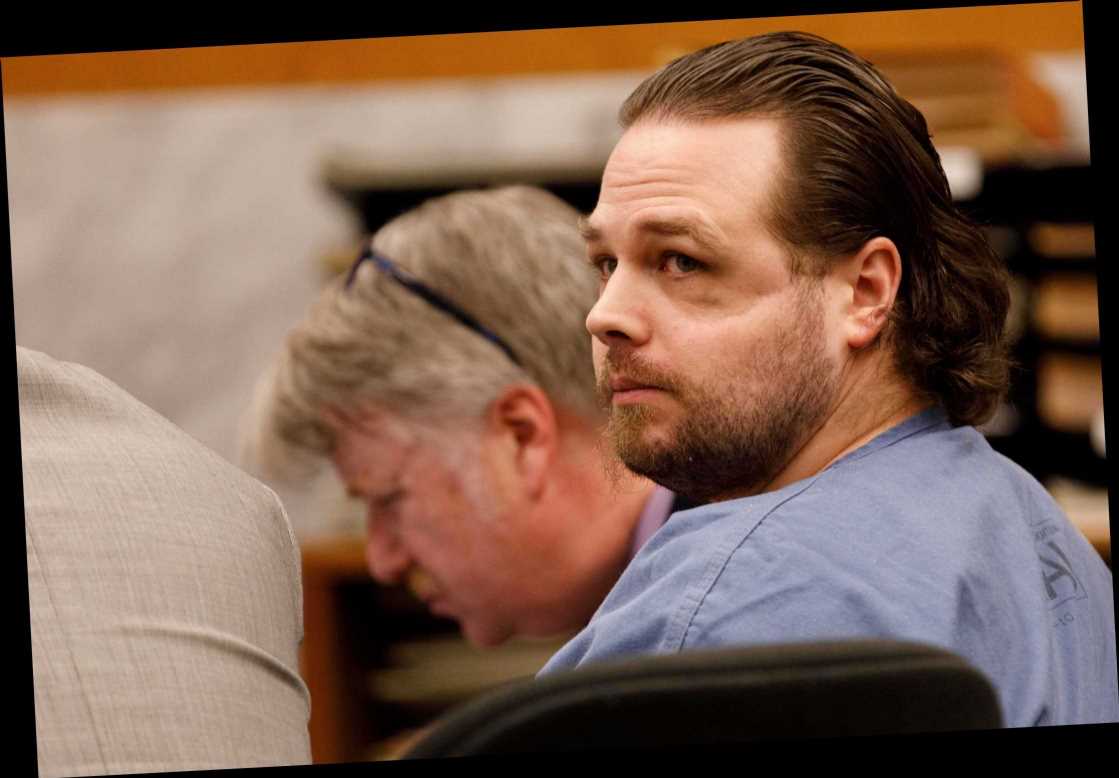PORTLAND, Ore. (AP) — A man accused of fatally stabbing two people who prosecutors say tried to stop his racist tirade against two young black women on a Portland, Oregon, commuter train was convicted of murder Friday after an emotional trial that featured testimony from both women and the sole survivor of the attack nearly three years ago.
Jurors found Jeremy Christian, 37, guilty of the deaths of Taliesin Namkai-Meche and Ricky Best. He also was convicted of attempted murder for stabbing survivor Micah Fletcher and assault and menacing for shouting slurs and throwing a bottle at a black woman on another light rail train the day before the May 26, 2017, stabbings.
A judge last year dismissed charges of aggravated murder — which carries a potential death sentence — because of a new Oregon law that narrows the definition of aggravated murder.
The stabbings’ racial undertones shook Portland, which prides itself on its liberal and progressive reputation but also grapples with a racist past that included limits on where black families could live and a neo-Nazi community so entrenched that the city was once nicknamed “Skinhead City.” The deaths also came weeks after a black teen was run down and killed by a white supremacist in a Portland suburb convenience store parking lot — a case that also grabbed headlines.
In the days after the stabbing, photos and video surfaced showing that Christian had recently attended — and spoken at — a rally hosted by a far-right group called Patriot Prayer, whose periodic political events were already causing tension in the city. He was captured on camera making the Nazi salute while wearing an American flag around his neck and holding a baseball bat.
On Facebook, his prolific posts slammed Portland as a place so politically correct that his right to free speech was constantly under assault. Those beliefs were front and center in the courtroom, too, when Christian told the judge on the first day of trial that he would wear his jail-issued blue uniform instead of a suit because to do otherwise would be like lying.
“I don’t care how much time I spend in prison,” he said. “All I care about is the public gets to see and hear what happened on the train.”
According to prosecutors, Christian boarded the train during the evening commute on May 26, 2017, and began shouting racist, anti-Muslim and xenophobic slurs at the two young black women. One was an immigrant from Somalia and wore a Muslim headscarf. Some witnesses said Christian in his outburst made a slicing motion across his neck and mentioned decapitating people.
As his tirade continued, Christian grabbed Namkai-Meche’s cellphone and threw it to the ground. Defense attorneys argued that Namkai-Meche had first approached Christian and was trying to film the tirade, which made him feel cornered.
Authorities say another passenger, Fletcher, stood up to intervene and got into a shoving match with Christian, who was taunting the men to “do something” to stop him.
Christian then took out a 4-inch folding knife and stabbed Fletcher and Namkai-Meche, prosecutors said. Authorities say he also stabbed a third passenger, Ricky Best, who was standing nearby. Namkai-Meche and Best died at the scene of stab wounds to the neck. Fletcher was seriously injured but survived.
Christian stabbed the men 11 times in 11 seconds. He would later tell a court-appointed psychologist during mental health evaluation that he felt like he was on “auto-pilot,” according to court records.
He was arrested a few blocks away.
Christian’s defense attorneys Gregory Scholl and Dean Smith argued that Christian had acted in self-defense and felt threatened by Namkai-Meche and Fletcher. An expert witness for the defense testified that Fletcher, in particular, escalated the situation by getting within 6 feet of Christian moments before Christian pulled out his knife.
During trial, detective Michelle Michaels read from a transcript of Christian’s comments shortly after he was arrested.
“There’s no way I can explain what happened,” he said. “Except both of those people would be alive if they’d kept their hands to themselves. Or got off the train or allowed me to have my free speech.”
BEFORE YOU GO
Source: Read Full Article

